Related Research Articles
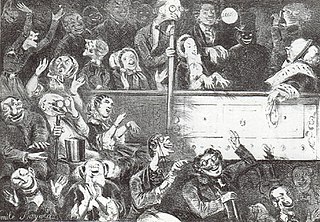
Operetta is a form of theatre and a genre of light opera. It includes spoken dialogue, songs, and dances. It is lighter than opera in terms of its music, orchestral size, length of the work, and at face value, subject matter. Apart from its shorter length, the operetta is usually of a light and amusing character. It sometimes also includes satirical commentaries.

Louisiana Purchase is a musical with music and lyrics by Irving Berlin and book by Morrie Ryskind based on a story by B. G. DeSylva. Set in New Orleans, the musical lightly satirises Louisiana Governor Huey Long and his control over Louisiana politics. An honest U.S. senator travels to Louisiana to investigate corruption in the Louisiana Purchase Company; the company's lawyer attempts to divert him via the attentions of two beautiful women, but the senator maintains his integrity and ends up marrying one of them. In 1941 it was adapted for the film Louisiana Purchase directed by Irving Cummings.
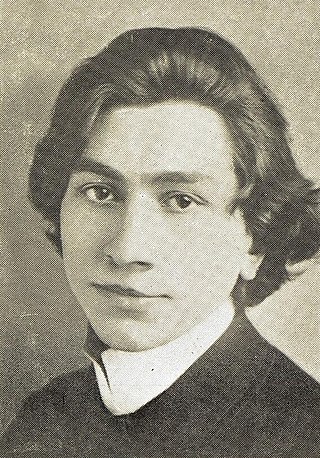
Charles Rudolf Friml was a Czech-born composer of operettas, musicals, songs and piano pieces, as well as a pianist. After musical training and a brief performing career in his native Prague, Friml moved to the United States, where he became a composer. His best-known works are Rose-Marie and The Vagabond King, each of which enjoyed success on Broadway and in London and were adapted for film.

The Producers is a musical comedy with music and lyrics by Mel Brooks, and a book by Brooks and Thomas Meehan. It is adapted from Brooks's 1967 film of the same name. The story concerns two theatrical producers who scheme to get rich by fraudulently overselling interests in a Broadway flop. Complications arise when the show unexpectedly turns out to be successful. The humor of the show draws on ridiculous accents, caricatures of gay people and Nazis, and many show business in-jokes.

Leopold Fall was an Austrian Kapellmeister and composer of operettas.
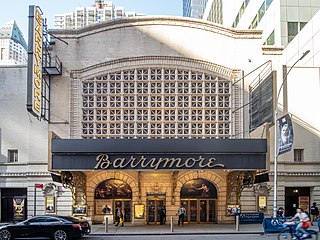
The Ethel Barrymore Theatre is a Broadway theater at 241 West 47th Street in the Theater District of Midtown Manhattan in New York City. Opened in 1928, it was designed by Herbert J. Krapp in the Elizabethan, Mediterranean, and Adam styles for the Shubert family. The theater, named in honor of actress Ethel Barrymore, has 1,058 seats and is operated by the Shubert Organization. Both the facade and the auditorium interior are New York City landmarks.
"The Girl That I Marry" is a song from the 1946 musical Annie Get Your Gun, written by Irving Berlin.
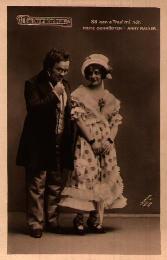
Das Dreimäderlhaus, adapted into English-language versions as Blossom Time and Lilac Time, is a Viennese pastiche operetta with music by Franz Schubert, rearranged by Heinrich Berté (1857–1924), and a libretto by Alfred Maria Willner and Heinz Reichert. The work gives a fictionalized account of Schubert's romantic life, and the story was adapted from the 1912 novel Schwammerl by Rudolf Hans Bartsch (1873–1952). Originally the score was mostly Berté, with just one piece of Schubert's, but the producers required Berté to discard his score and create a pasticcio of Schubert music.

Madame Pompadour is an operetta in three acts, composed by Leo Fall with a libretto by Rudolph Schanzer and Ernst Welisch. Conducted by the composer, it opened at the Berliner Theater in Berlin on 9 September 1922 and then at the Theater an der Wien in Vienna on 2 March 1923.

Rida Johnson Young was an American playwright, songwriter and librettist. In her career, Young wrote over 30 plays and musicals and approximately 500 songs. She was inducted into the Songwriters Hall of Fame in 1970. Some of her better-known lyrics include "Mother Machree" from the 1910 show Barry of Ballymore, "Italian Street Song", "I'm Falling in Love with Someone" and "Ah! Sweet Mystery of Life" from Naughty Marietta, and "Will You Remember?" from Maytime.
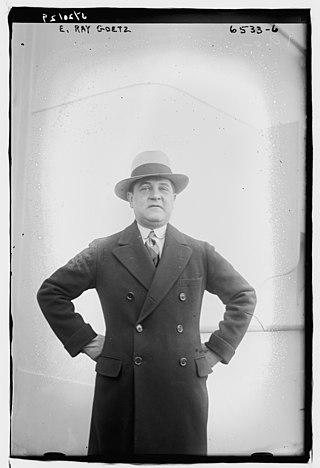
Edward Ray Goetz was an American composer, lyricist, playwright, theatre director, and theatrical producer. A Tin Pan Alley songwriter, he published more than 500 songs during his career; many of them originally written for the New York stage. His songs were recorded by several artists, including Judy Garland, Al Jolson, and Blossom Seeley. He was active as both a lyricist and composer for Broadway musicals from 1906 through 1930; collaborating with artists like George Gershwin, Cole Porter, Sigmund Romberg, and A. Baldwin Sloane to create material for the theatre. Beginning with the musical Hitchy-Koo of 1917, he also produced several of the musicals and plays he was creatively involved in up until the 1930-1931 Broadway season when he produced his final stage work, Porter's The New Yorkers, for which he also created the story and served as director. He authored the play The Lady of the Orchids which he produced on Broadway in 1928. He also produced and served as production supervisor of Herbert Fields and Porter's 1929 musical Fifty Million Frenchmen which was adapted by Warner Brothers into a 1930 film of the same name. His work as a songwriter was featured in the films For Me and My Gal (1942), Somebody Loves Me (1952), and The Greatest Show On Earth (1952); the latter of which resulted from his work as the lyricist for the Ringling Bros. and Barnum & Bailey Circus during the final three years of his life. Having never stopped working, he died in 1954.
Kismet is a three-act play written in 1911 by Edward Knoblauch. The title means Fate or Destiny in Turkish and Urdu. The play ran for 330 performances in London and later opened in the United States. It was subsequently revived, and the story was later filmed several times and adapted for the 1953 musical.

Leave It to Jane is a musical in two acts, with music by Jerome Kern and book and lyrics by Guy Bolton and P. G. Wodehouse, based on the 1904 play The College Widow, by George Ade. The story concerns the football rivalry between Atwater College and Bingham College, and satirizes college life in a Midwestern U.S. town. A star halfback, Billy, forsakes his father's alma mater, Bingham, to play at Atwater, to be near the seductive Jane, the daughter of Atwater's president.

The Runaways, originally Chow Chow, was an American comedy musical with book and lyrics by Addison Burkhardt and music by Raymond Hubbell. The show was joined by Fay Templeton when it came to Broadway. The musical is set at a club and race track in Saratoga County, New York, and on the fictional Isle of Table d'Hote.

Sydney Rosenfeld (1855–1931) was an American playwright who wrote numerous plays, and adapted many foreign plays. Close to fifty of his creations played on Broadway.
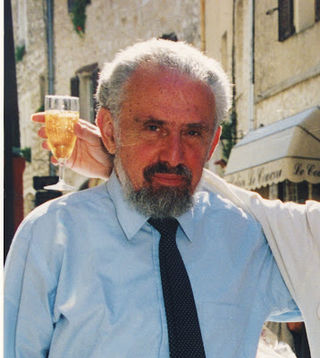
Gerald Martin Bordman was an American theatre historian, best known for authoring the reference volume The American Musical Theatre, first published in 1978. In reviewing an updated version of American Musical Theatre in 2011, Playbill wrote that the book had "altered the scope of American musical theatre history" and "remained the only book of its kind, and an invaluable one."

Buddies is a 1919 Broadway musical by George V. Hobart and with music by Bentley Collingwood Hilliam. After an initial run in Boston starting on August 12, it opened at the Selwyn Theatre on October 17, 1919, and played for 259 performances through June 12, 1920.

The Greenwich Village Follies was a musical revue that played for eight seasons in New York City from 1919 to 1927. Launched by John Murray Anderson, and opening on July 15, 1919, at the newly constructed Greenwich Village Theatre near Christopher Street, the show's success has been credited in part to its timing: as a non-union production, it was unaffected by the then-current actors' strike.

The Druid Circle is a 1947 play by the British-American writer John Van Druten. It was staged in a run at the Morosco Theatre on Broadway from 22 October 1947, lasting for seventy performances. The cast included Leo G. Carroll and Ethel Griffies. A British university professor, frustrated to be working in a provincial institution, discovers a love letter written by one of his students to a girl. After humiliating them both, the Professor comes to realise too late the meanness of his actions.

Baron Trenck is a comic opera in three acts loosely based on the life of Baron Franz von der Trenck. The original German-language work was composed by Felix Albini to a libretto by Alfred Maria Willner and Robert Bodanzky and premiered at the Stadttheater in Leipzig in 1908. The English version, adapted by Frederick Franklin Schrader and Henry Blossom, ran for just 43 performances at the Strand Theatre in London in 1911. It starred Walter Passmore, Walter Hyde and Caroline Hatchard.
References
- ↑ Bordman, p. 315